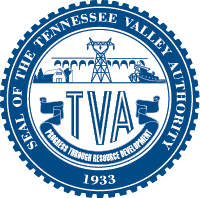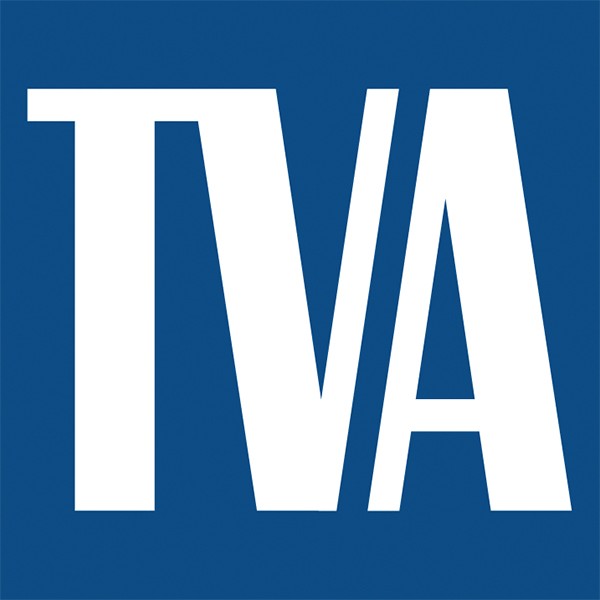Lawmakers Want a More Transparent TVA
The Tennessee General Assembly and Governor Bill Lee added their voices to the chorus of lawmakers who think the Tennessee Valley Authority (TVA) should make all of its meetings open to the public.
TVA conducts its four, quarterly meetings in public. But committees meet in secret before those public meetings to discuss issues on the TVA’s upcoming agenda. A TVA spokesman said, though, committee meetings “are not decision-making meetings and a quorum of board directors is not present.”
In January, two Tennessee Congressmen — U.S. Rep. Tim Burchett (R-Knoxville) and U.S. Rep. Steve Cohen (D-Memphis) — introduced the Tennessee Valley Authority Transparency Act of 2019. That bill ”would require meetings of the TVA Board to be held in public, properly noticed, and make available minutes and summaries of each meeting.”

State lawmakers in both houses passed a resolution this year signing on to the idea that TVA’s meetings should be public. It was passed unanimously in the Senate. It received only one “present not voting” action from one of the House’s 94 members present the day of the vote. Speakers in the House and Senate signed the resolution last Monday. Lee signed it the next day.
The resolution says all the lawmakers ”strongly support the passage of the Tennessee Valley Authority Transparency Act of 2019.”
“…it is vitally important to the citizens of Tennessee that TVA, as an entity created and protected by Congress, should conduct their business in the open and be as transparent as possible…,” it reads.
The state resolution was filed by Sen. Ken Yager (R-Kingston). He said he “could not agree more with what” Burchett was “trying to do” with his bill.
”We all know…that the TVA is the steward of billions of dollars of ratepayers’ money,” Yager said. “But they also make rules that govern the lives and effect the lives of everybody else in Tennessee, not the least of which are the property owners of this state.
“I just think in the spirit of transparency, and open government, these meetings — all their meetings — should be open. When Congressmen Burchett filed the bill, I wanted to give the legislature the opportunity to show their support with a resolution.”
[pdf-1]
When asked about the resolution Tuesday, TVA spokesman Scott Brooks said, “TVA is a federal agency and follows direction and guidance provided by Congress.”
Brooks also gave a list of details ”about our current efforts to remain open and transparent.” Here it is:
• TVA is one of very few government agencies that file detailed financial reports with the Securities and Exchange Commission (SEC).
• Significant decisions are preceded by various assessments according to the National Environmental Policy Act, which include public comment periods.
[pullquote-1] • TVA routinely posts detailed information through public channels, including public meetings, webcasts, our website and social media.
• TVA responds thoughtfully to FOIA (Freedom of Information Act) requests that come in from members of the public.
• TVA board meetings have been, and remain, open to the public.
• Board meetings are streamed live on TVA’s website and videos are available for viewing after each meeting. 
• The board hosts public listening sessions prior to each board meeting.
• TVA Board committee meetings are not decision-making meetings and a quorum of board directors is not present.
• Confidential and sensitive information is shared in committee meetings to allow directors to provide better oversight.
• Committee meetings are often held in TVA operation areas that contain unique safety and security considerations.
When Burchett filed the bill in January he said, “I had a good, informative meeting with (former) TVA CEO Bill Johnson this week, and while I understand that TVA has reasons for not wanting to open all meetings to the public, as an entity created and protected by Congress, the public deserves to know the Authority’s business is as open and transparent as possible.”
[pullquote-2] Lindsay Pace, Tennessee regional organizer on the Renew TN campaign, wrote Monday that TVA’s board meetings are “highly scripted” with ”the real discussion between board members happening behind closed doors in committee meetings.” But the lack of transparency does not end there, Pace wrote on the blog for the Southern Alliance for Clean Energy (SACE).
 SACE
SACE
Cynthia Brown delivers public comments at one of the last TVA board meetings in which public comment was allowed to happen the same day as the board meeting. The public is no longer allowed to provide comment during the actual TVA board meetings.
“Currently, there are very few opportunities for the public to engage with TVA and what little interaction the public had has severely diminished with the change in structure to the board meetings,” Pace wrote. “Last fall, TVA made the decision to split the public listening session from the board meetings, with the listening session now being held the day prior to the board meeting and not live streamed online like the rest of the board meeting.
“Both the listening session and board meeting are held during typical workday hours, which has resulted in forcing many of those who want to attend to choose between the two, since taking consecutive days off work is not feasible for the majority of working people.”
